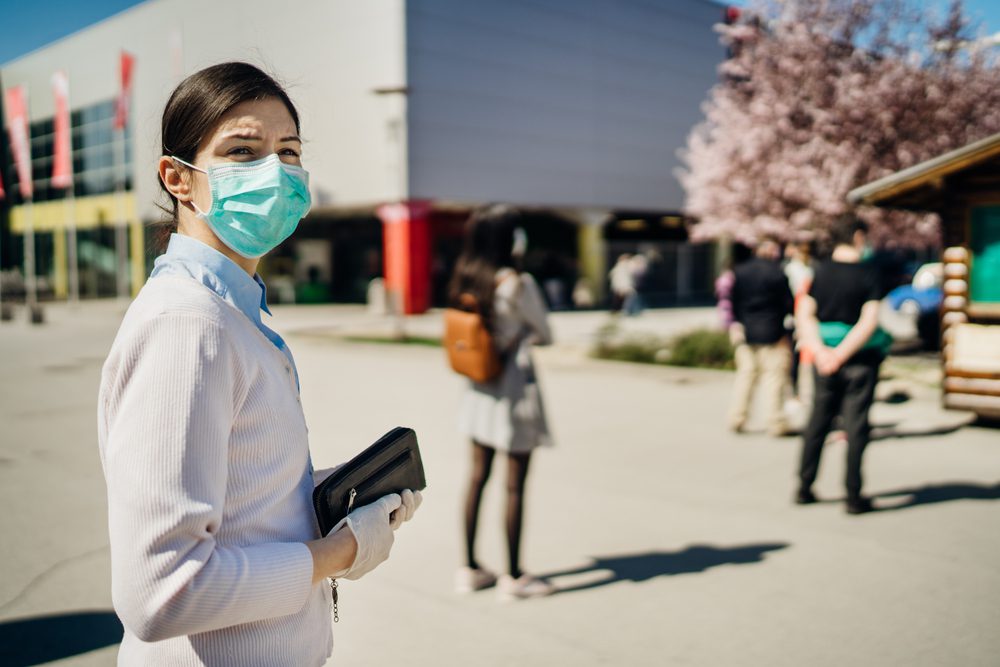
The coronavirus pandemic has changed our lives in so many ways we’ve lost count. We are now wearing face masks in public places, working from home, taking virtual tours of museums and places around the world.
Changes have also been made in terms of the laws and rules we have to comply with. While some of them are stricter and tougher, others have been relaxed to help people cope with the new reality. Read on to find out what laws you can now break because of the coronavirus pandemic.
Eviction laws
More than 20 million people in the United States have lost their jobs amid the coronavirus pandemic. For these people, buying groceries or paying rent is now more difficult than ever. To come to their help, authorities have modified or even suspended certain eviction laws. For example, in New York, no one can get evicted earlier than August 20.
“In many states that have eviction laws, state governments have adopted special rules to protect renters that may be suffering as a result of COVID-19 and prevent them from being evicted,” says Michael Weiner, attorney, and partner at Slate Law Group.

Virtual appointments with your doctor
The healthcare industry has been hit the hardest by the coronavirus pandemic. Changes had to be made so that healthcare providers could continue working and helping people in safe conditions. Therefore, many providers opted for telehealth services.
“Currently, HIPAA [Health Insurance Portability and Accountability Act] rules are being relaxed to allow any type of platform to be used for virtual visits, even FaceTime and Skype,” says Io Dolka, care advocate and founder of Grey Zone. But virtual visits or not, make sure you watch out for these 10 Dental Scams Dentists Don’t Want You to Know About.
Open container laws
You may have noticed people on the streets sipping all sorts of (alcoholic) drinks. If drinking alcohol in a public place was a big no-no in the past, the coronavirus changed that to some extent.
“It is typically a violation of city and county ordinances to possess open alcohol containers on public property, yet many jurisdictions have relaxed these laws due to economic concerns,” says Kris Parker, Esq. But bars and restaurants need help to survive, so authorities in various states have allowed them to sell alcohol to-go. “Strict enforcement of open container laws would force many local companies out of business, and collectively this would have a devastating effect on the local and national economies,” Parker continues. “The flexibility of selective law enforcement and relaxation of open container laws are helping to keep many small businesses open during a fragile economic period.”

Outdoor dining restrictions
Summer season is here and people are more eager than ever to go out and enjoy the nice, warm weather after months of lockdown and social distancing measures. When it comes to outdoor dining, “many cities are easing restrictions on outdoor dining, and they are examining and allowing temporary use permits for restaurants to extend their outdoor spaces into parking spaces and adjacent areas,” says Weiner. “This will allow space for more customers and will help maintain social distancing.”
Speaking of dinner and entertainment amid the coronavirus outbreak, discover 7 Things That Will Cost Much More After Coronavirus.
Environmental regulations
According to the Environmental Protection Agency (EPA), they did “not expect to seek penalties for violations of routine compliance monitoring, integrity testing, sampling, laboratory analysis, training, and reporting or certification obligations in situations where the EPA agrees that COVID-19 was the cause of the noncompliance.” In other words, the rules for major polluters like factories and power plants have been drastically relaxed, allowing them to determine for themselves if they are able to meet legal environmental regulations.
“E.P.A. is committed to protecting human health and the environment, but recognizes challenges resulting from efforts to protect workers and the public from Covid-19 may directly impact the ability of regulated facilities to meet all federal regulatory requirements,” said Andrew R. Wheeler, the E.P.A. administrator.
Check out 5 Surprising Ways You Might Still Be Exposing Yourself to Coronavirus and learn how to stay safe and healthy.

Unemployment benefit requirements
With unemployment reaching new record highs because of the coronavirus crisis, thousands of people are relying solely on their unemployment checks. To simplify the process, authorities have taken certain measures. For example, “in California, the Employment Development Department has relaxed the requirements and level of information needed in order to get unemployment insurance. Previously they required much more information upfront, such as an in-depth certification of unemployment, and a detailed accounting of where and how you tried to get a job. Now, that is not the case,” explains Kelly Williams, founder and attorney at Slate Law Group.























